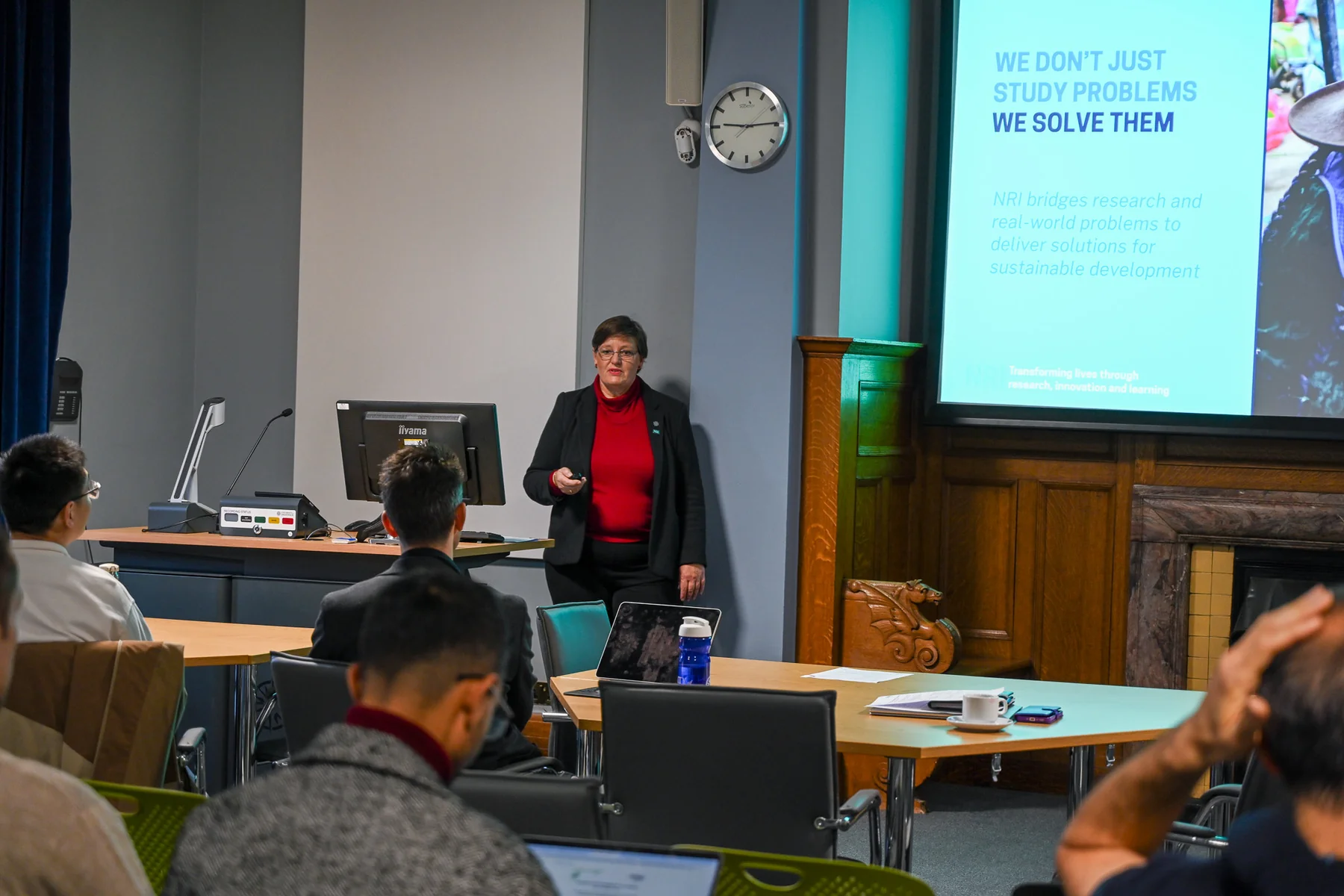


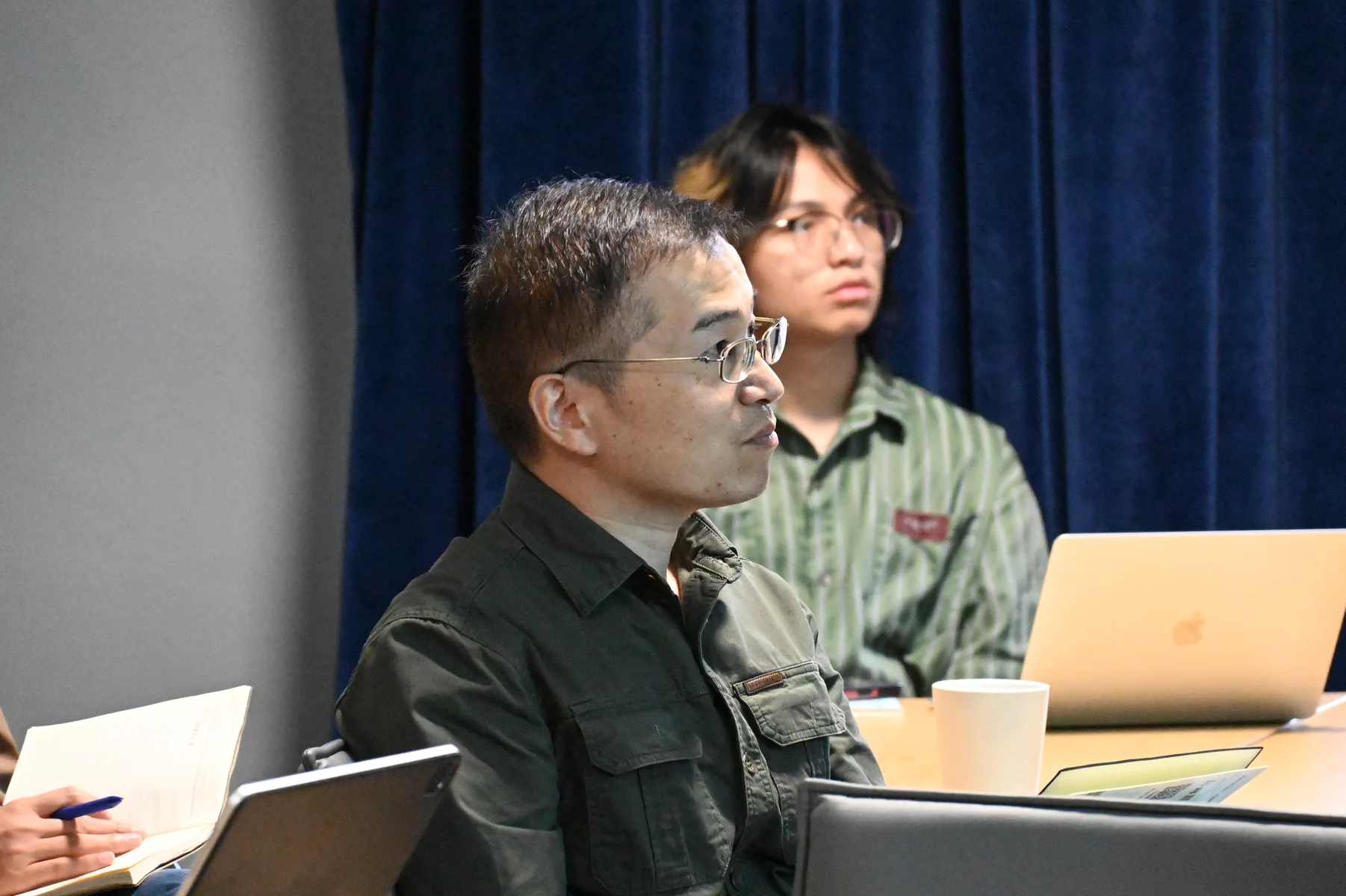
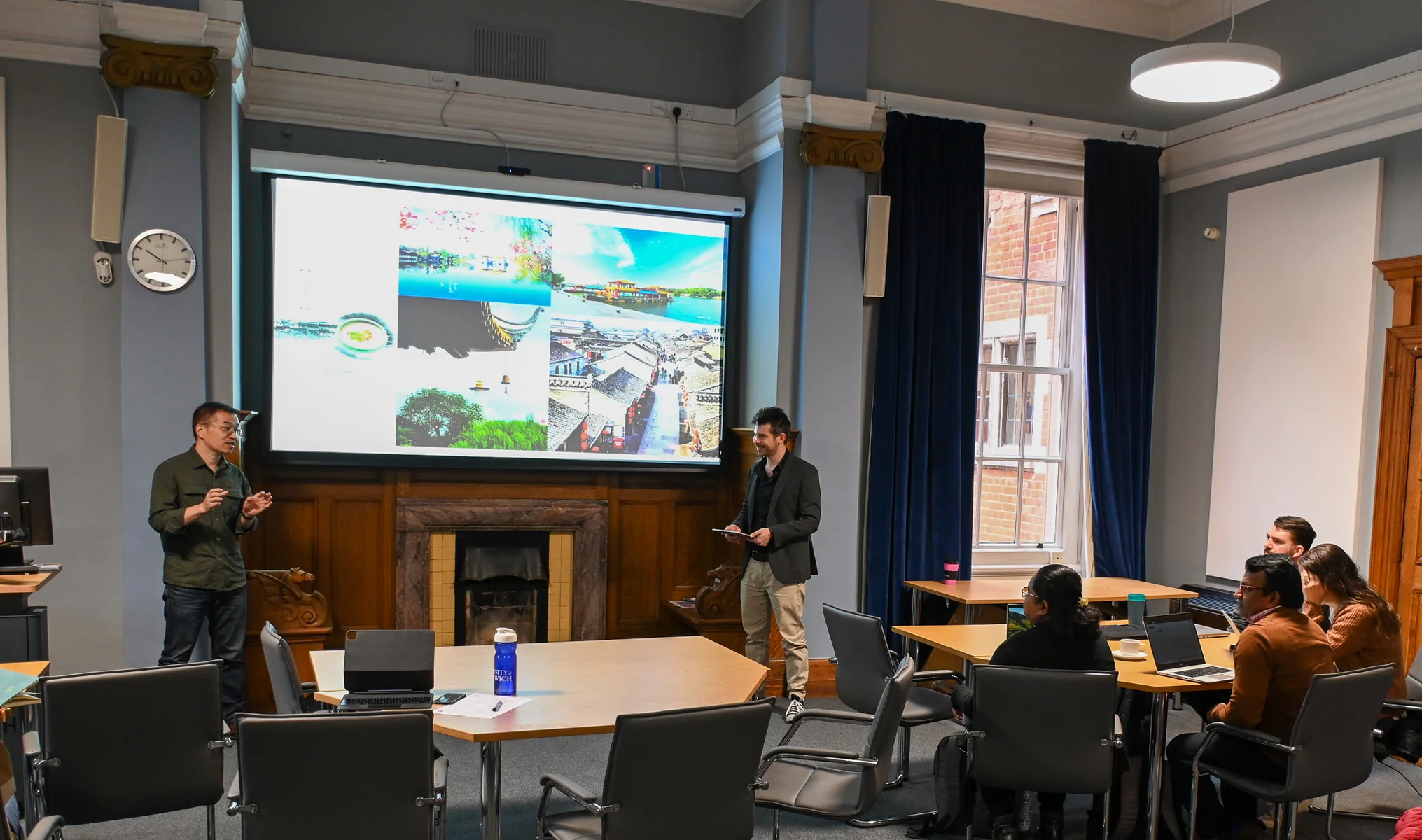
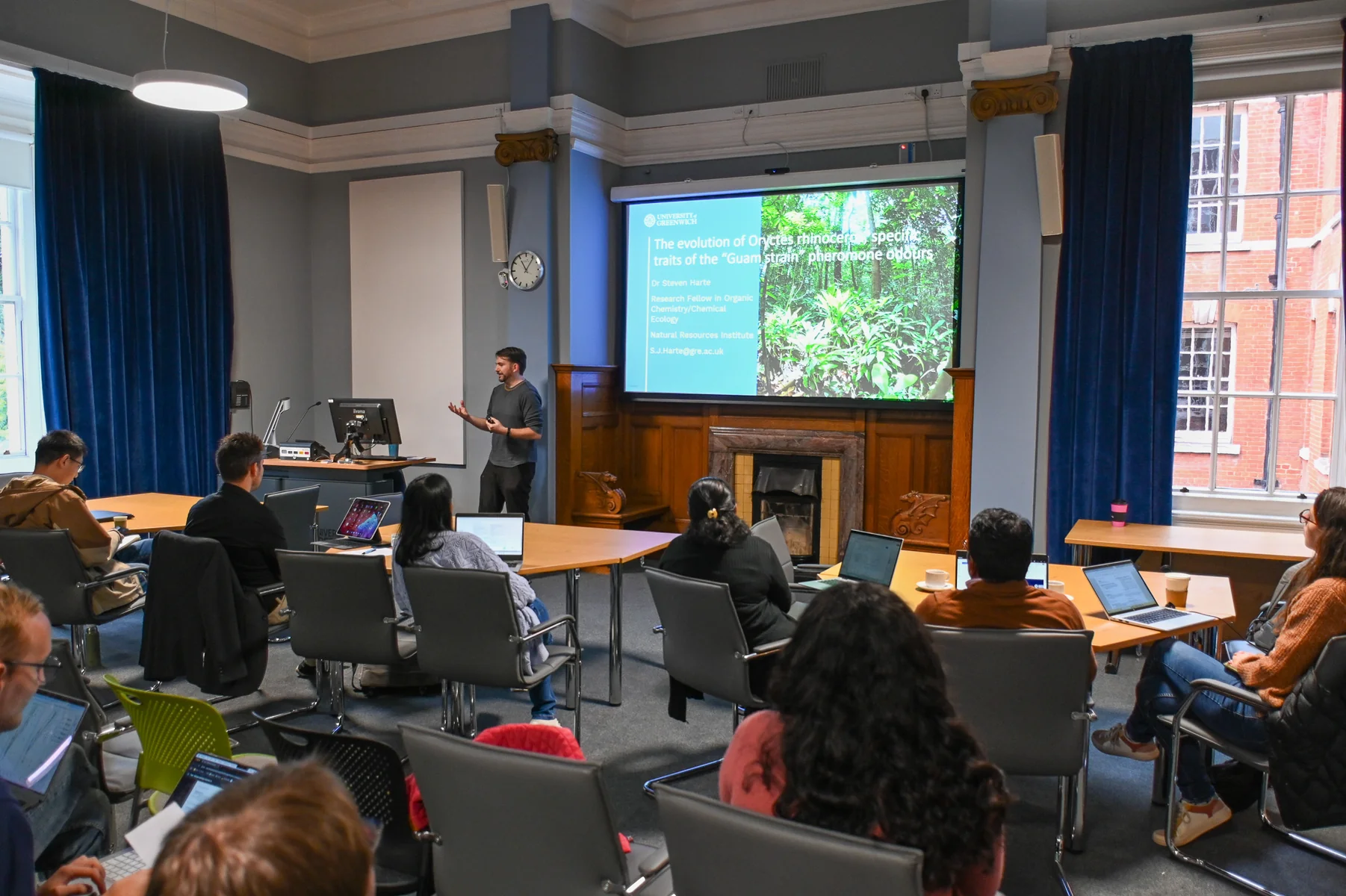
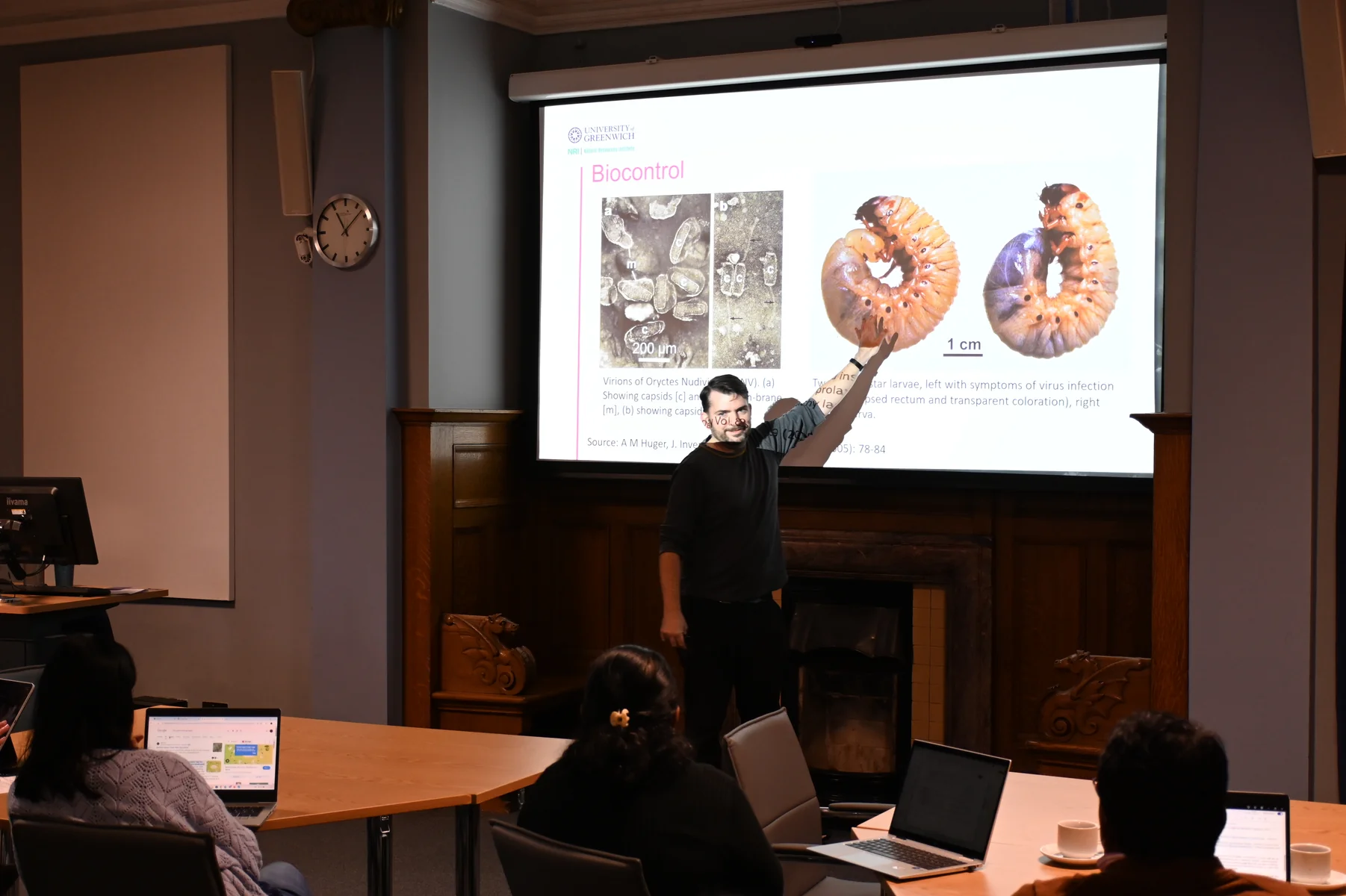
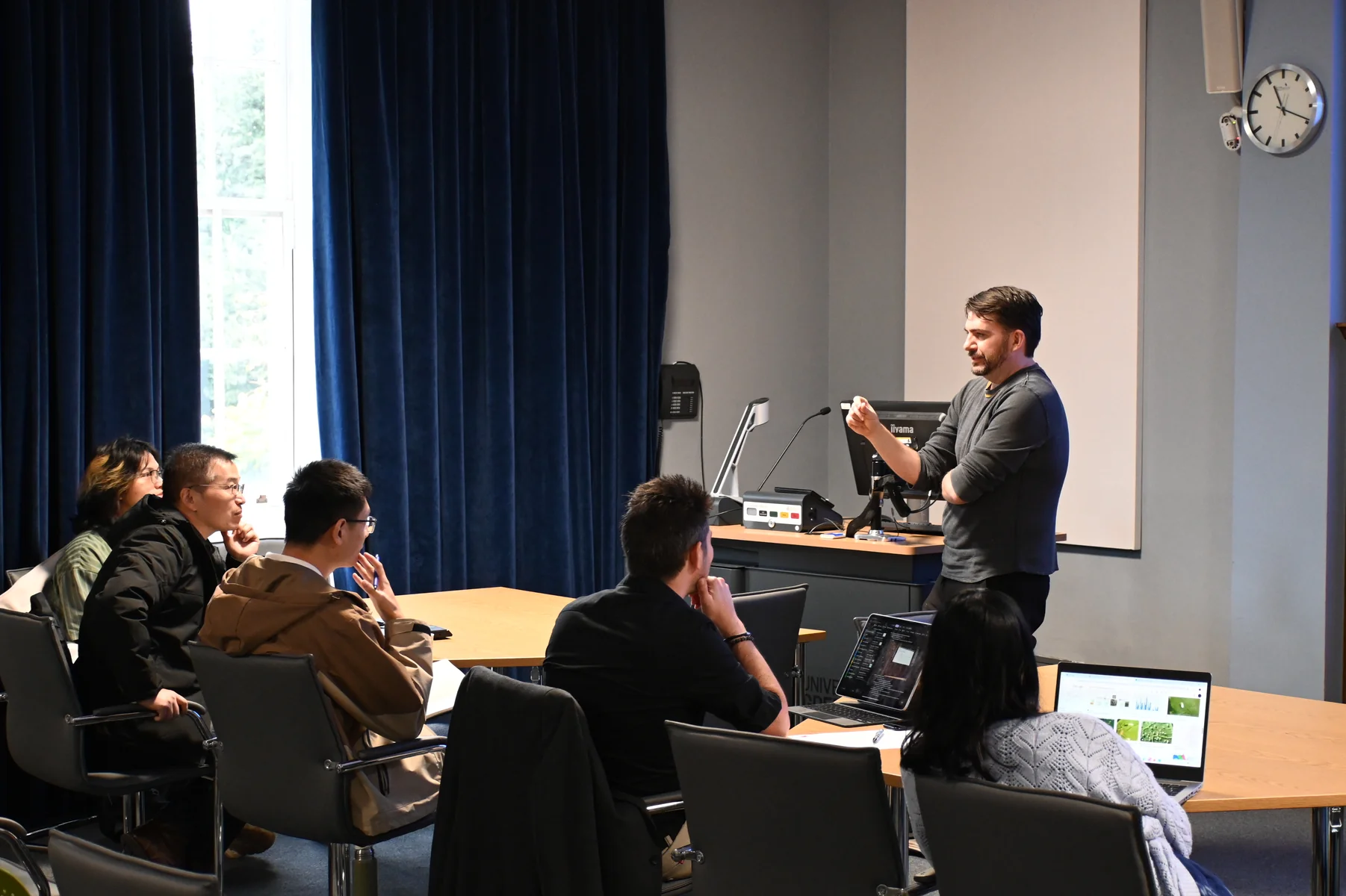
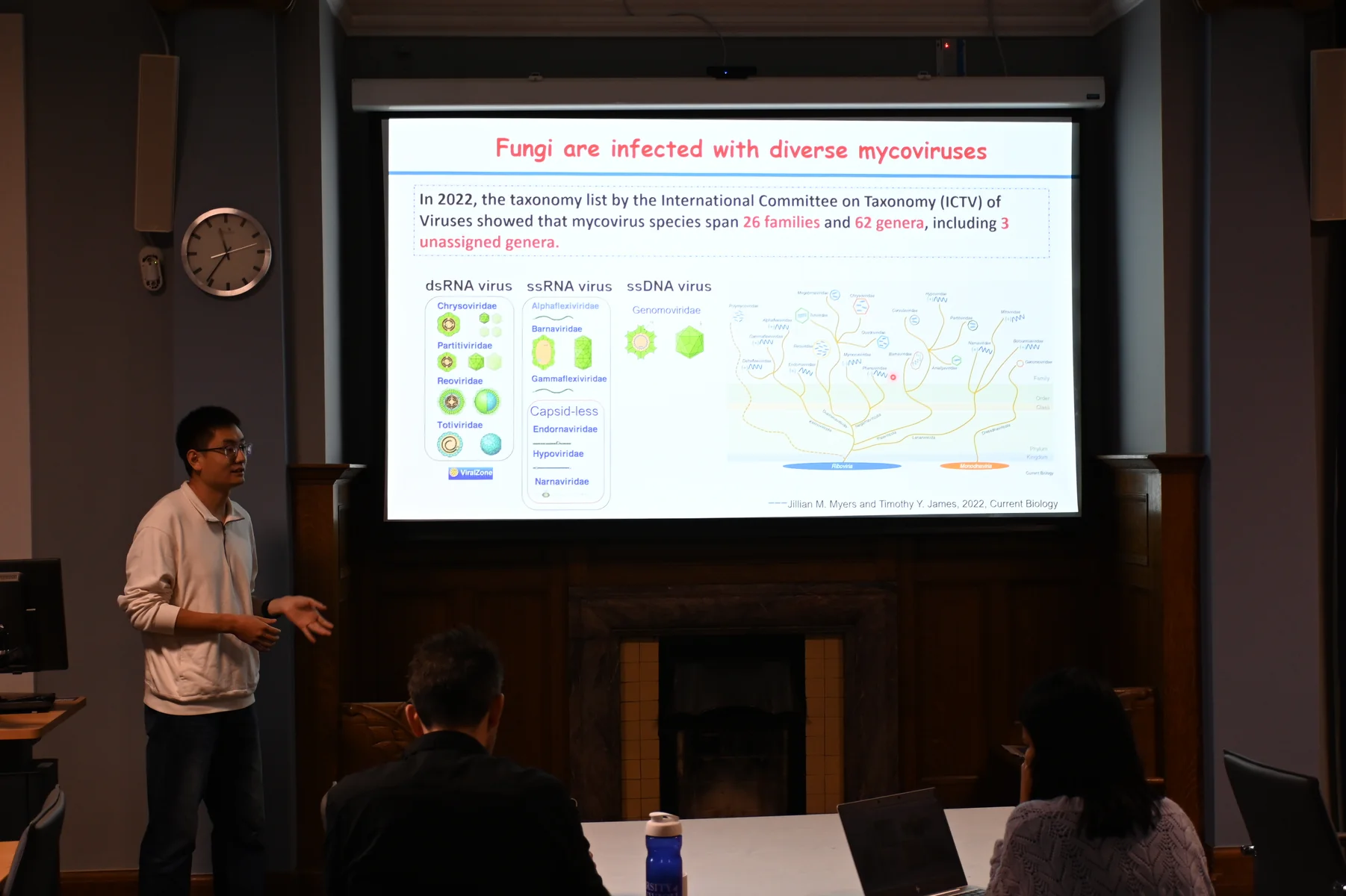
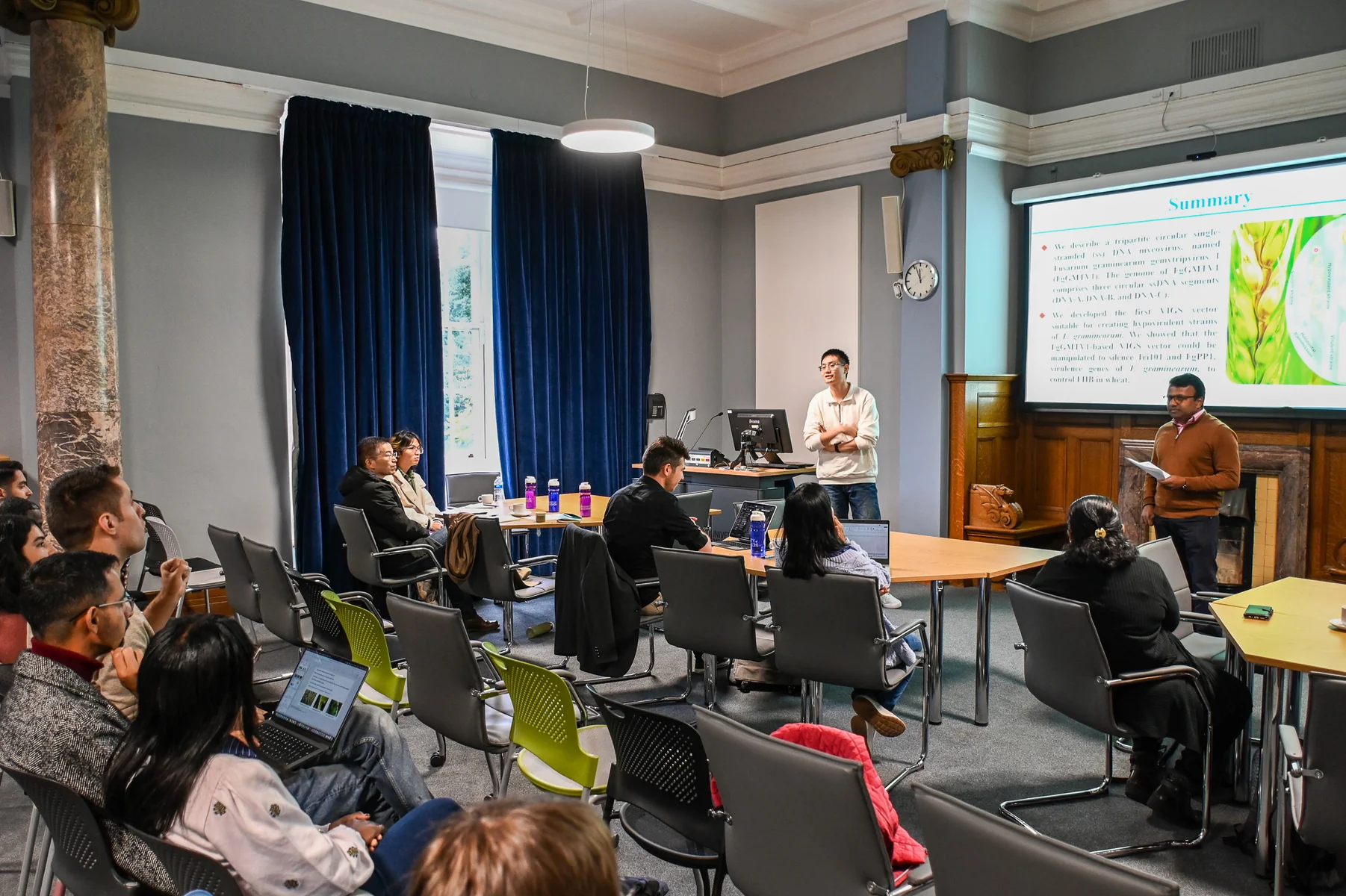
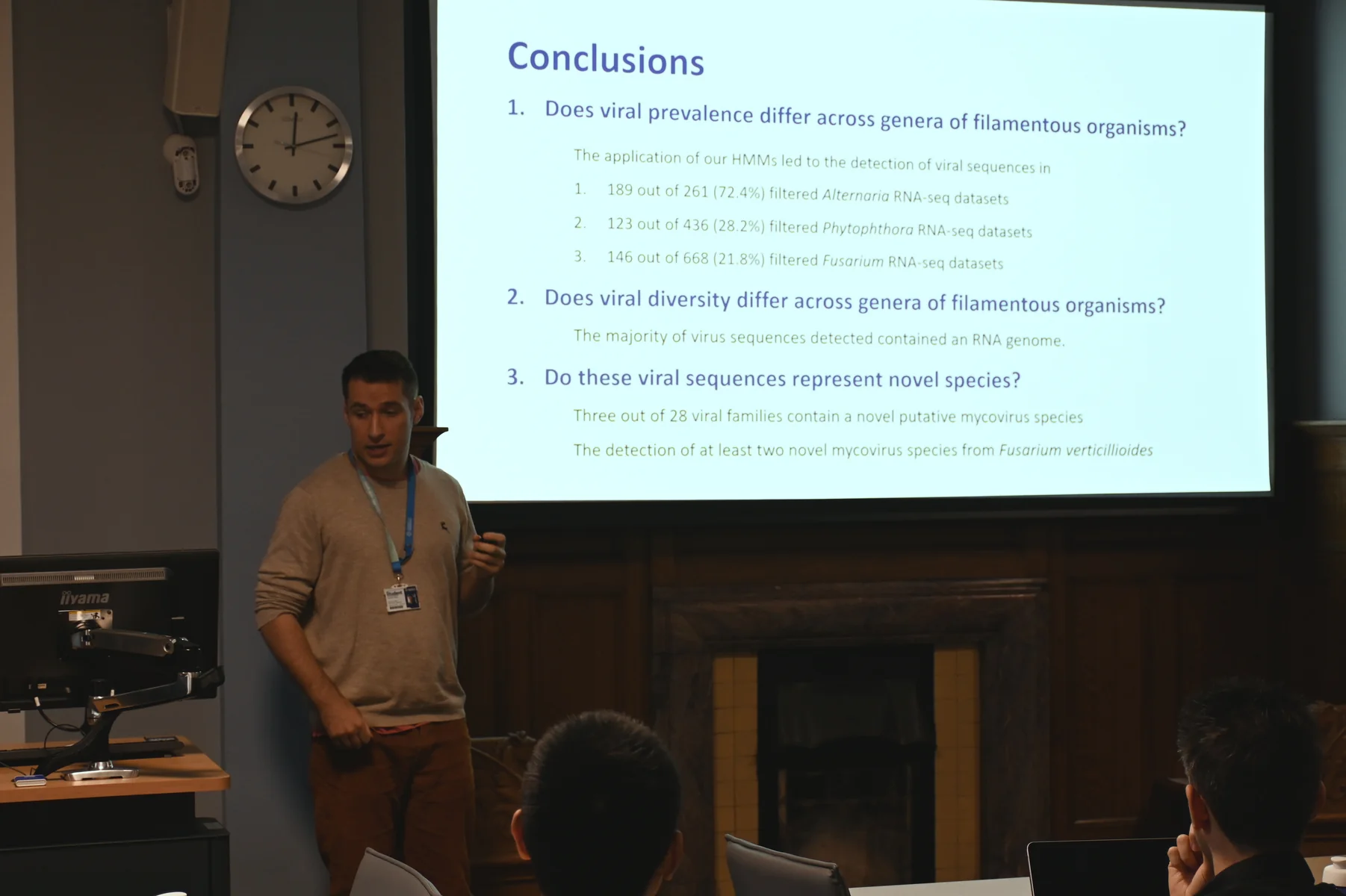
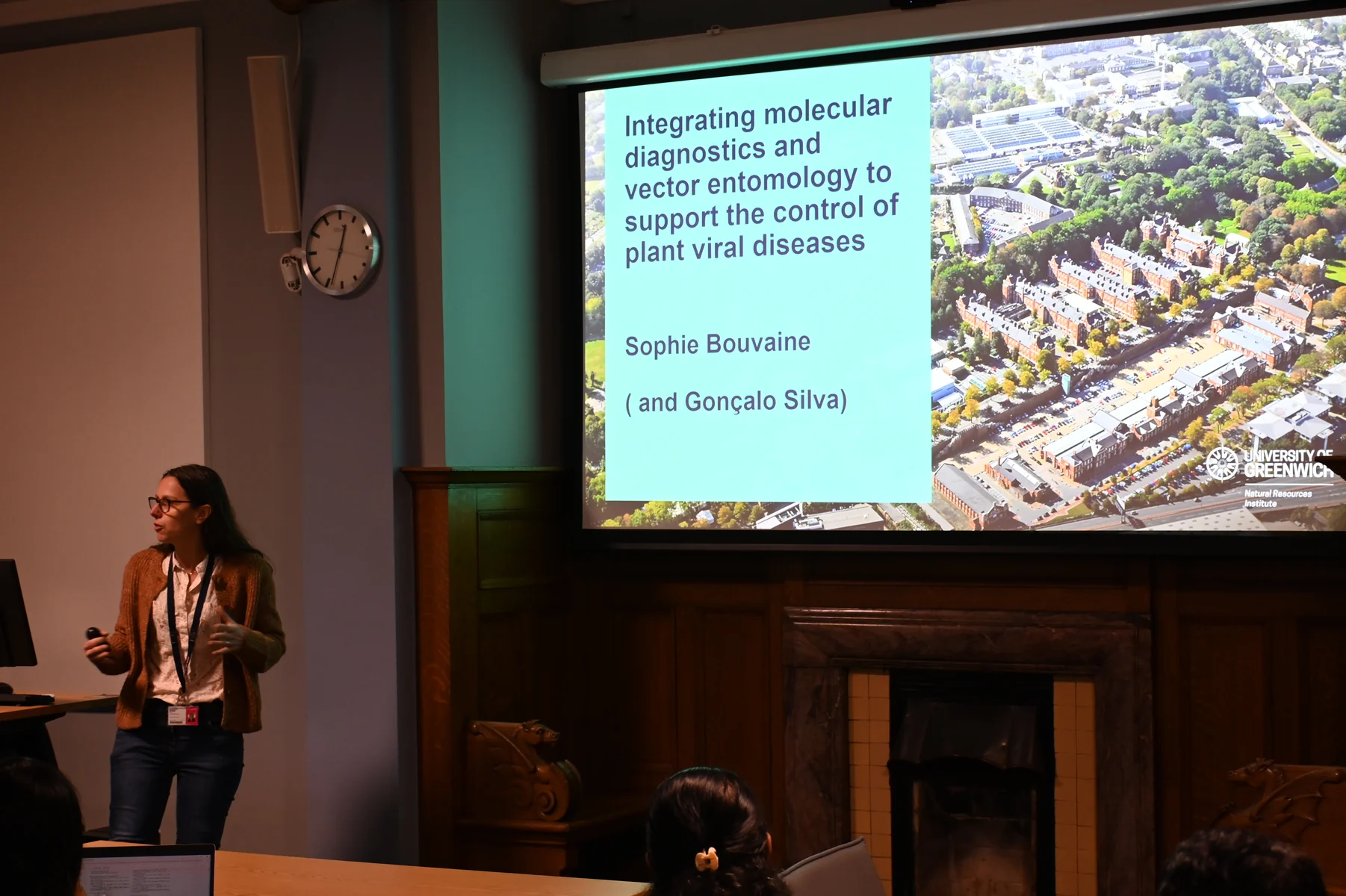
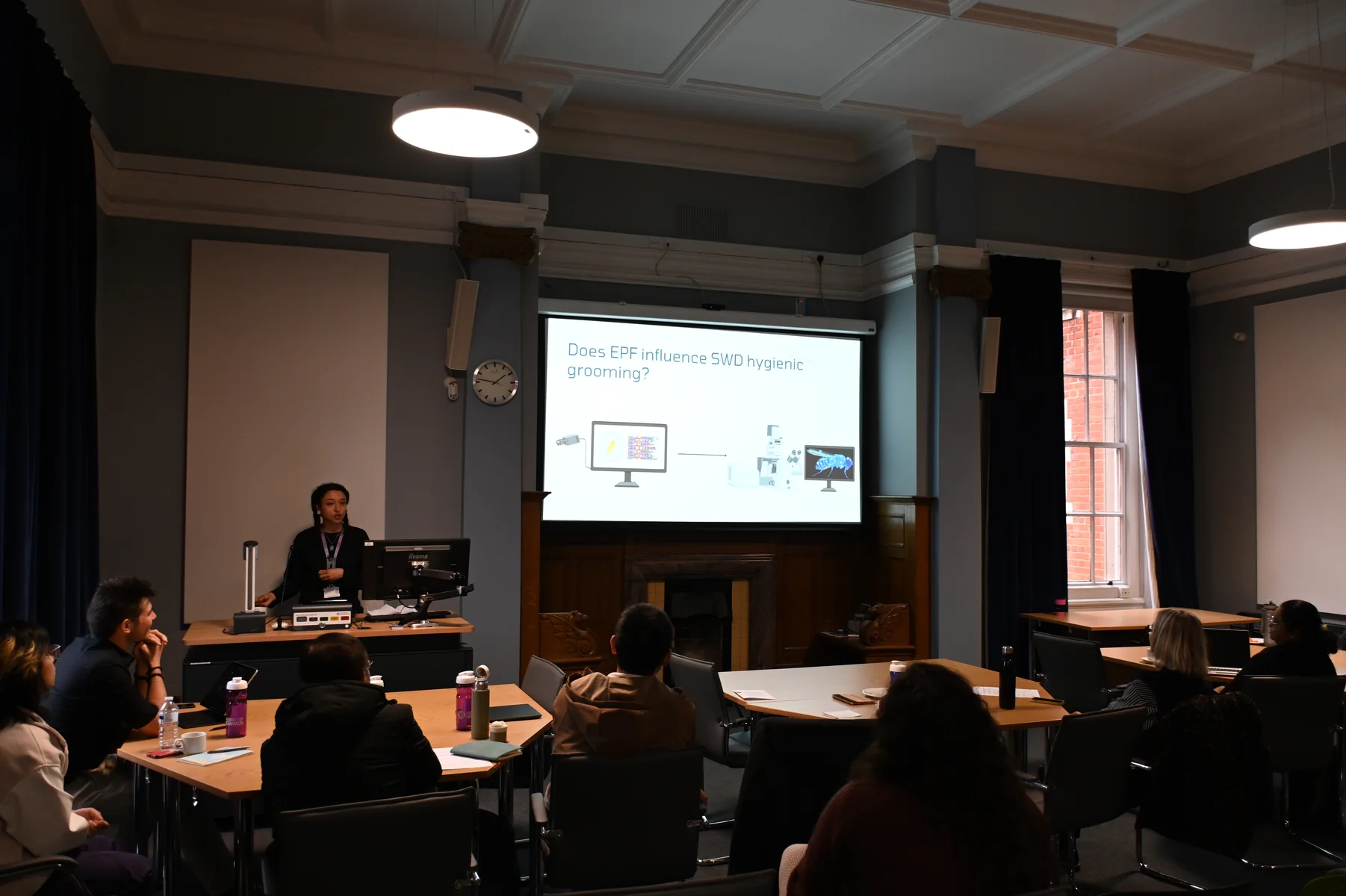
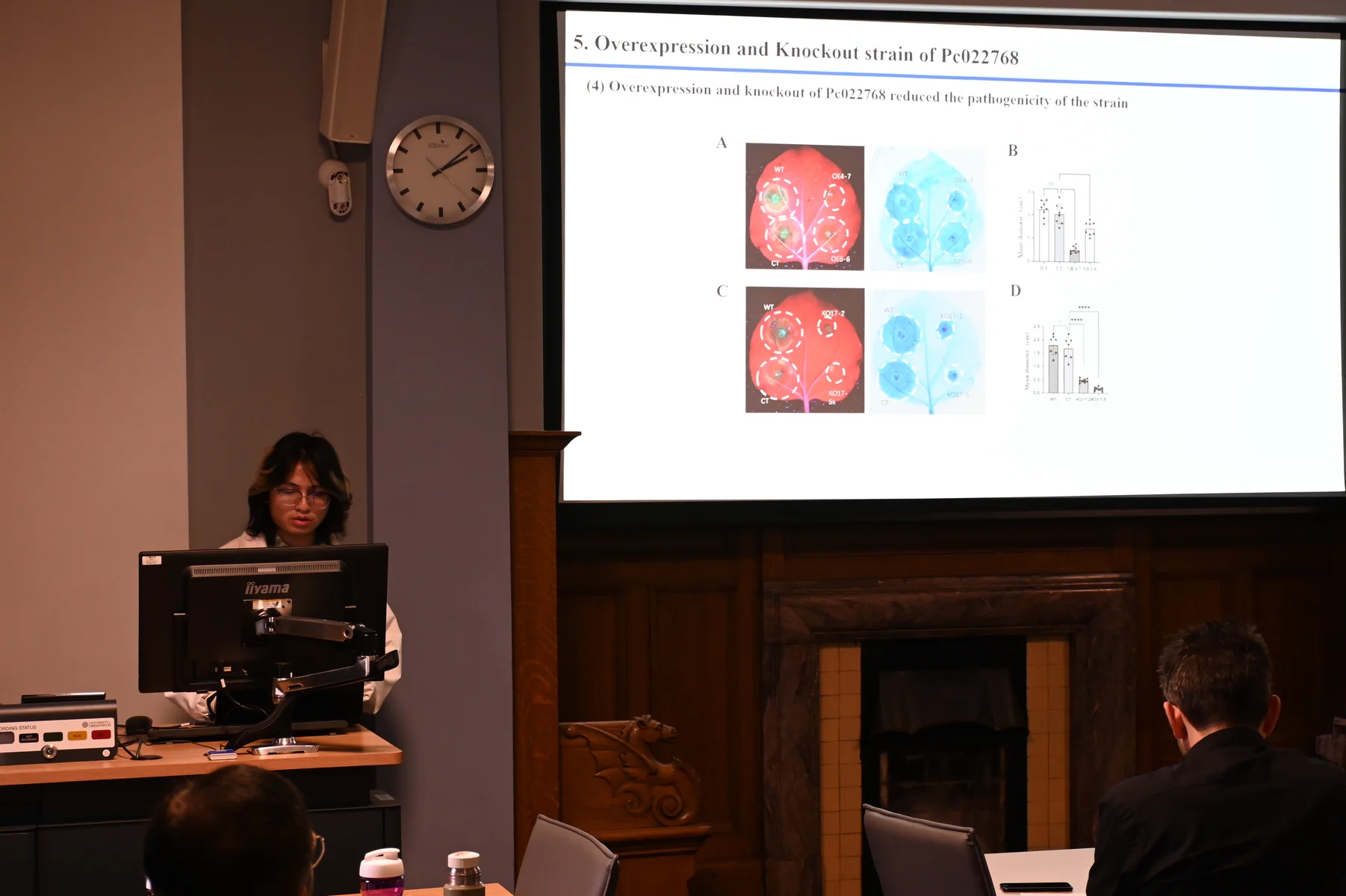
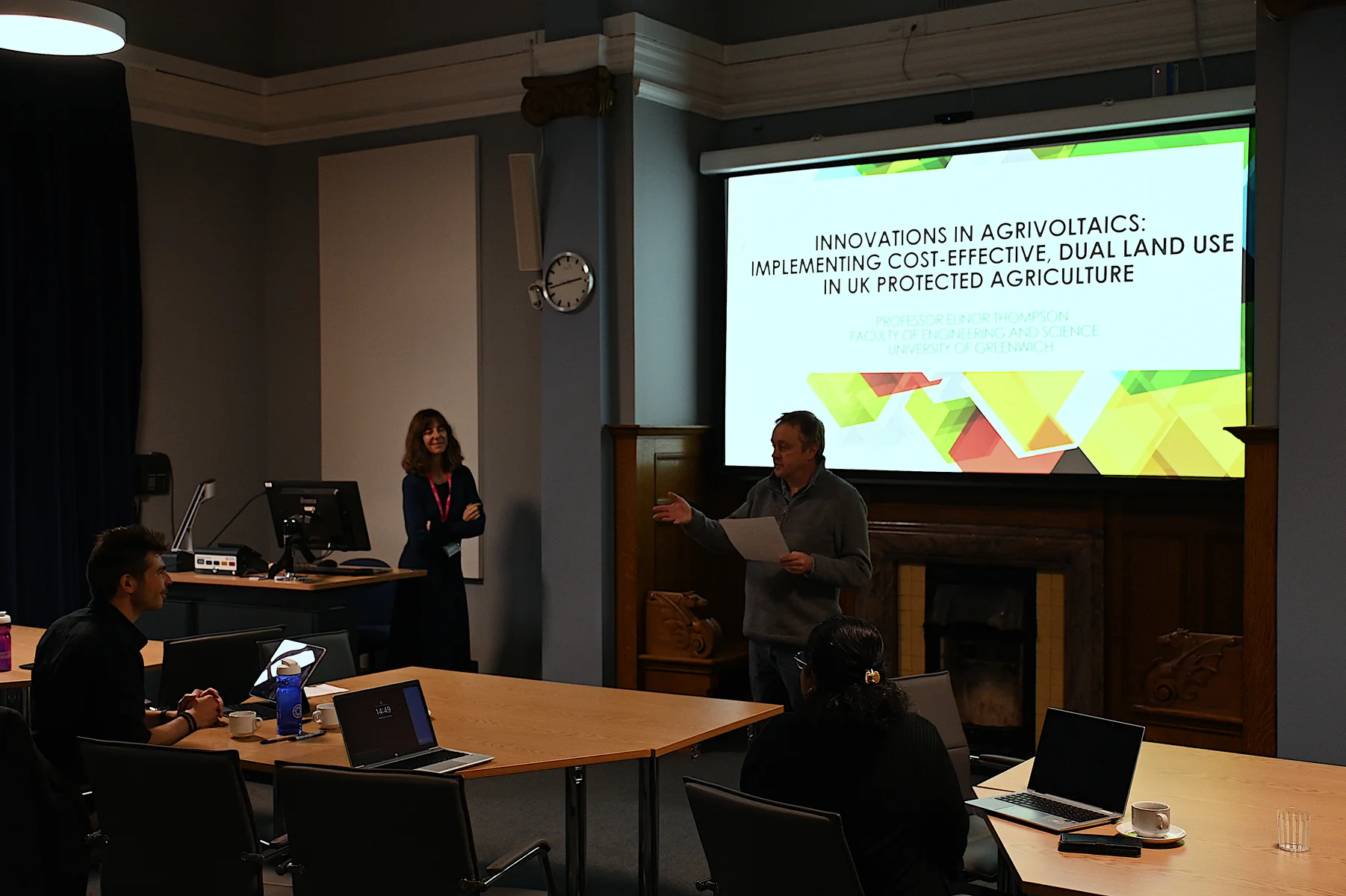
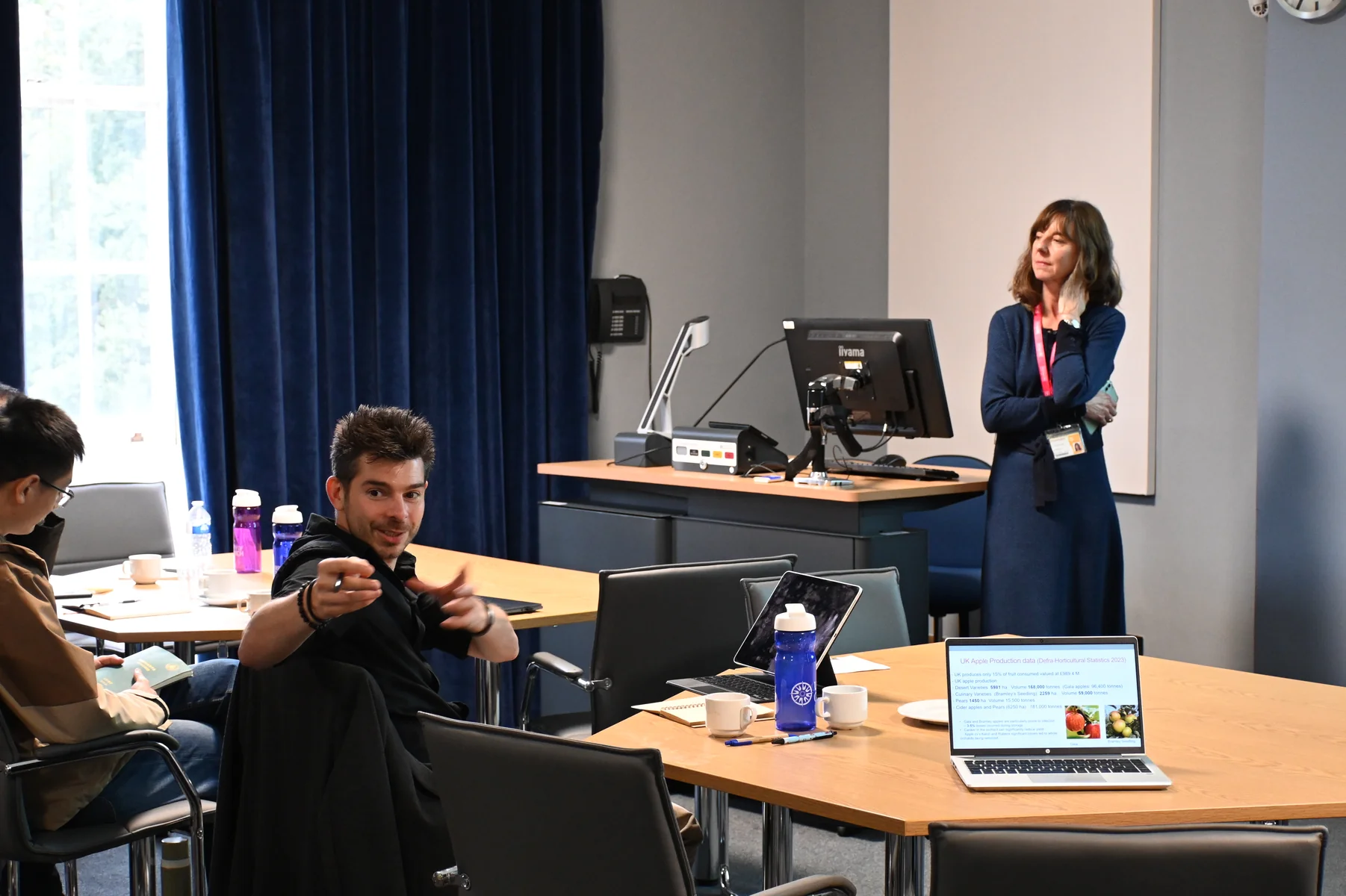
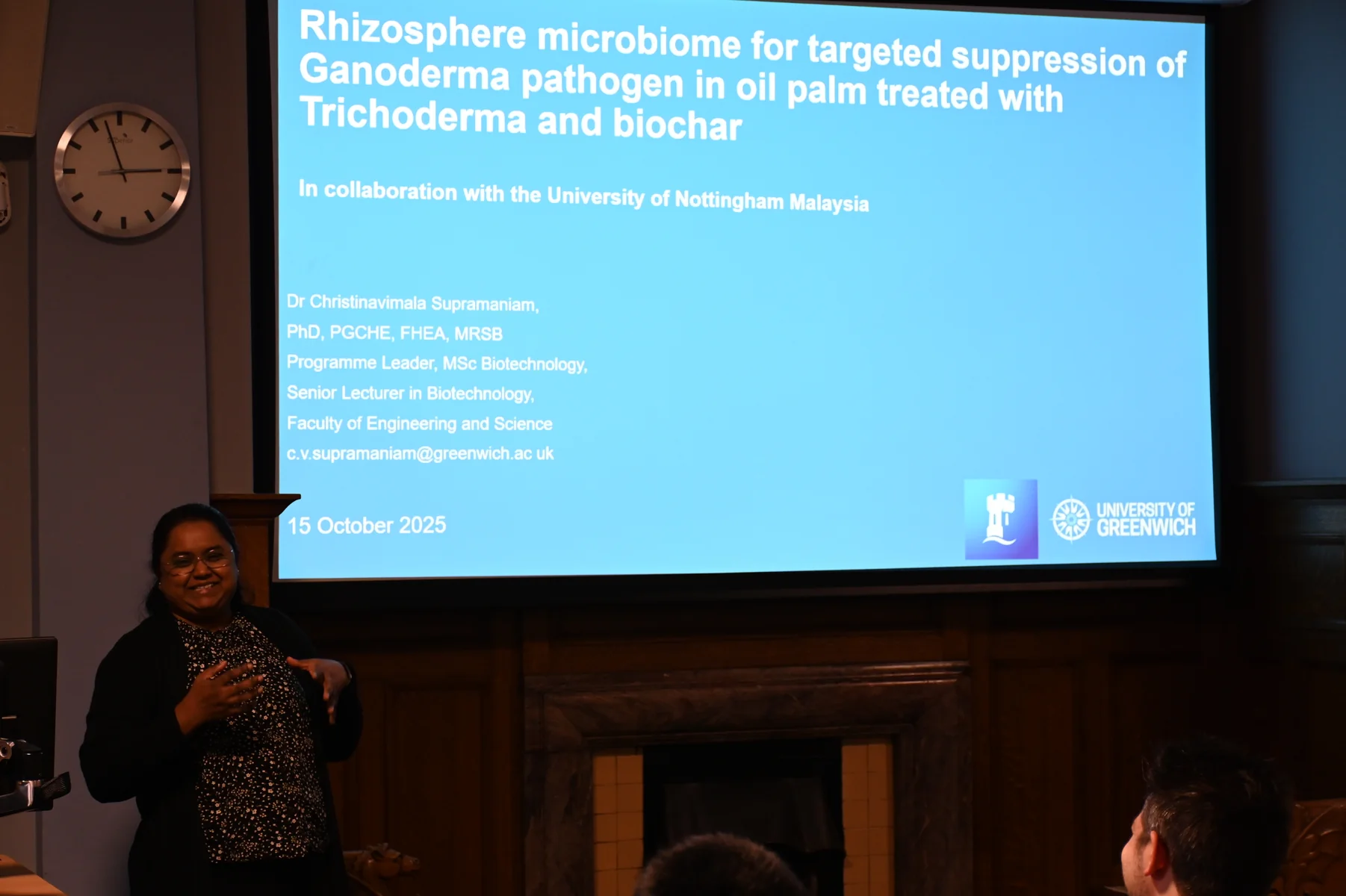
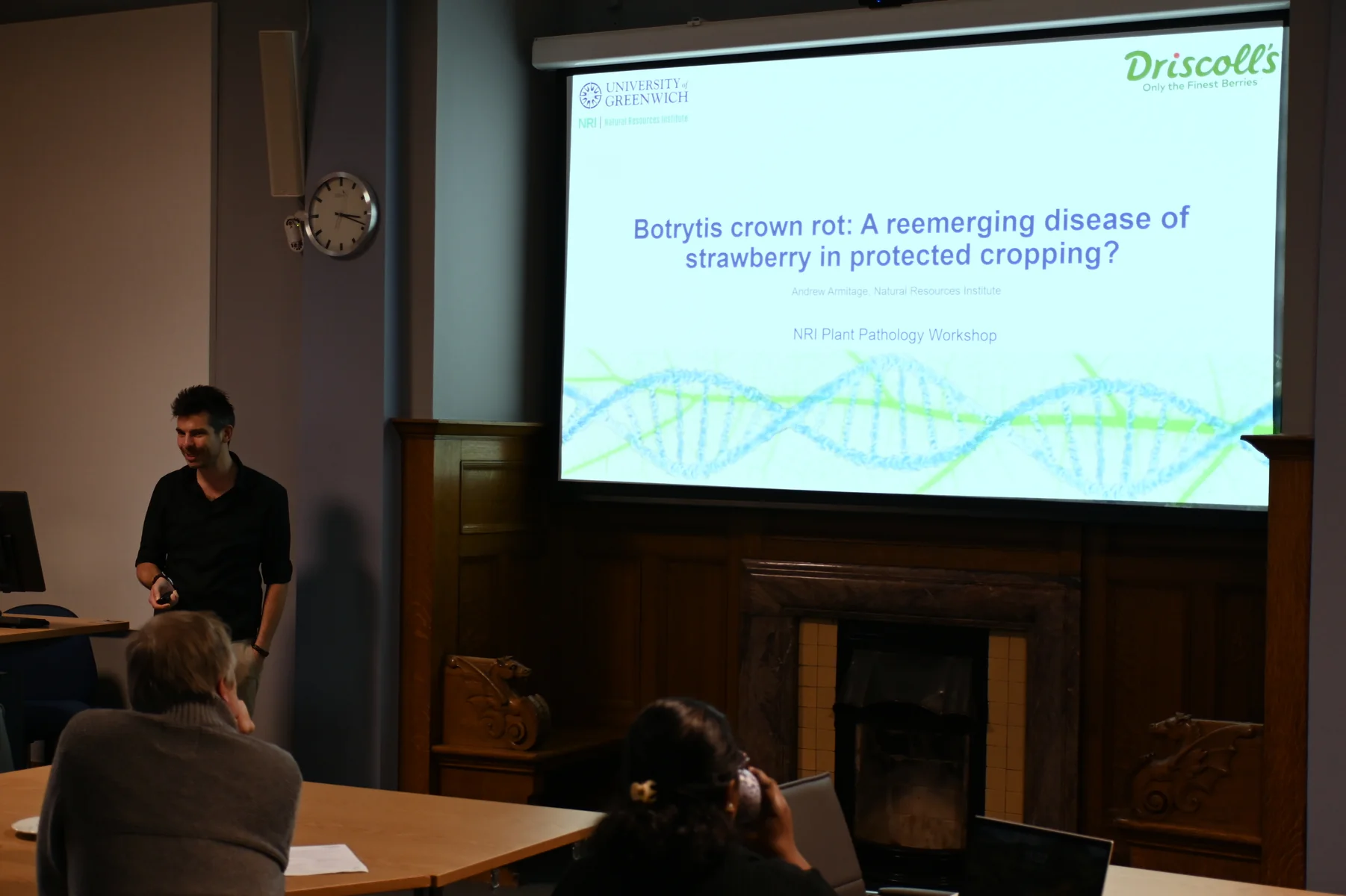
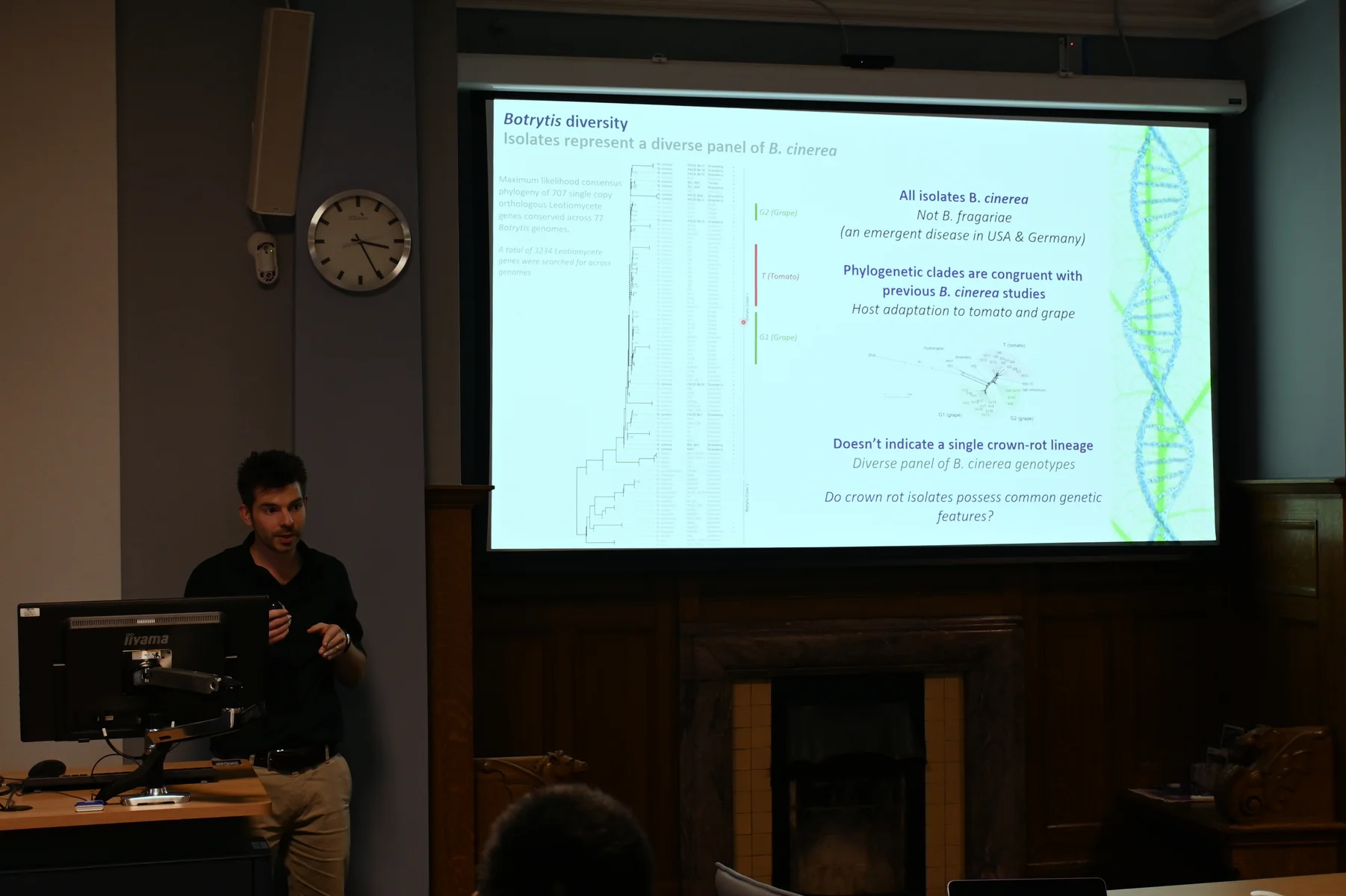
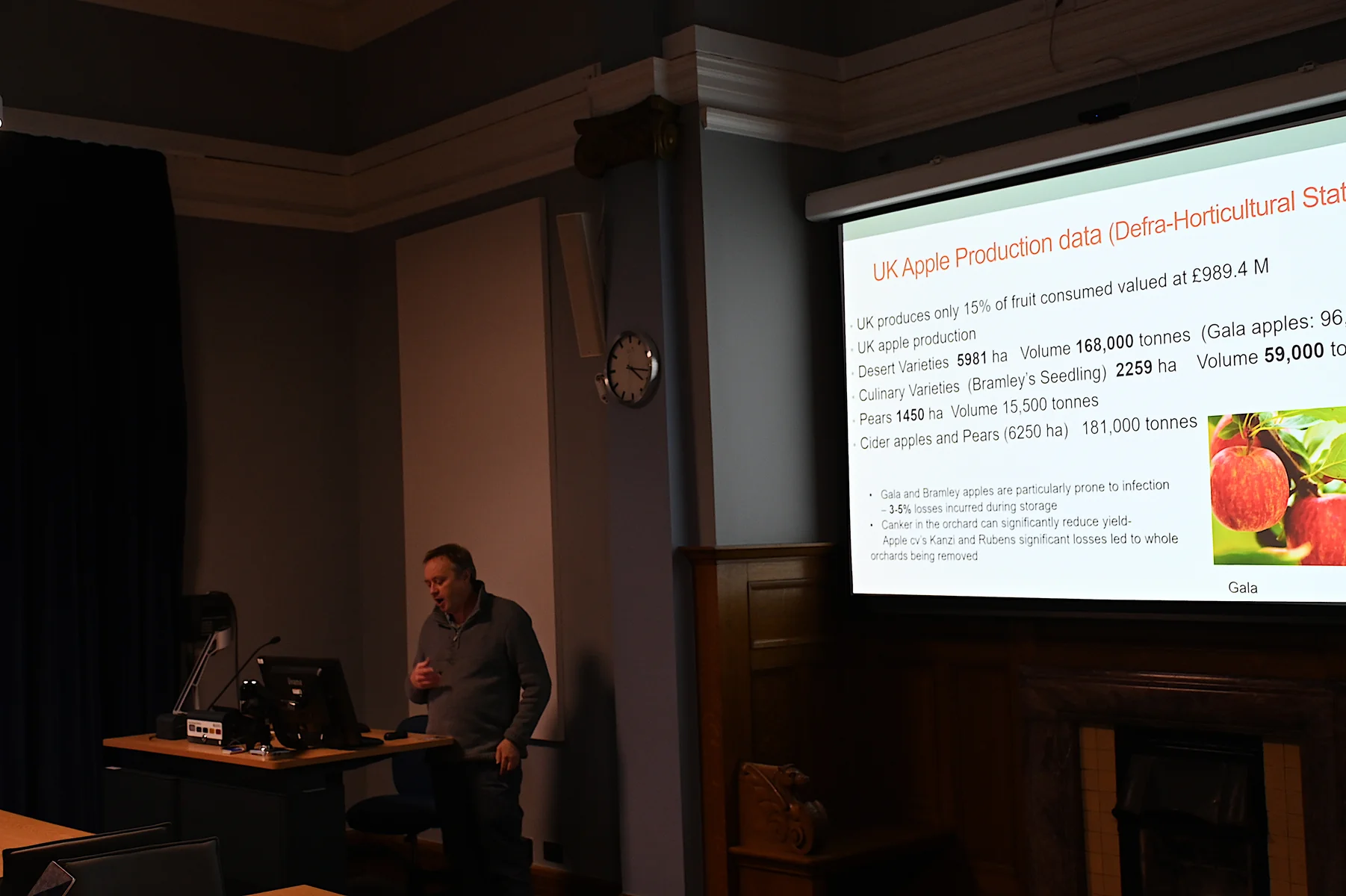
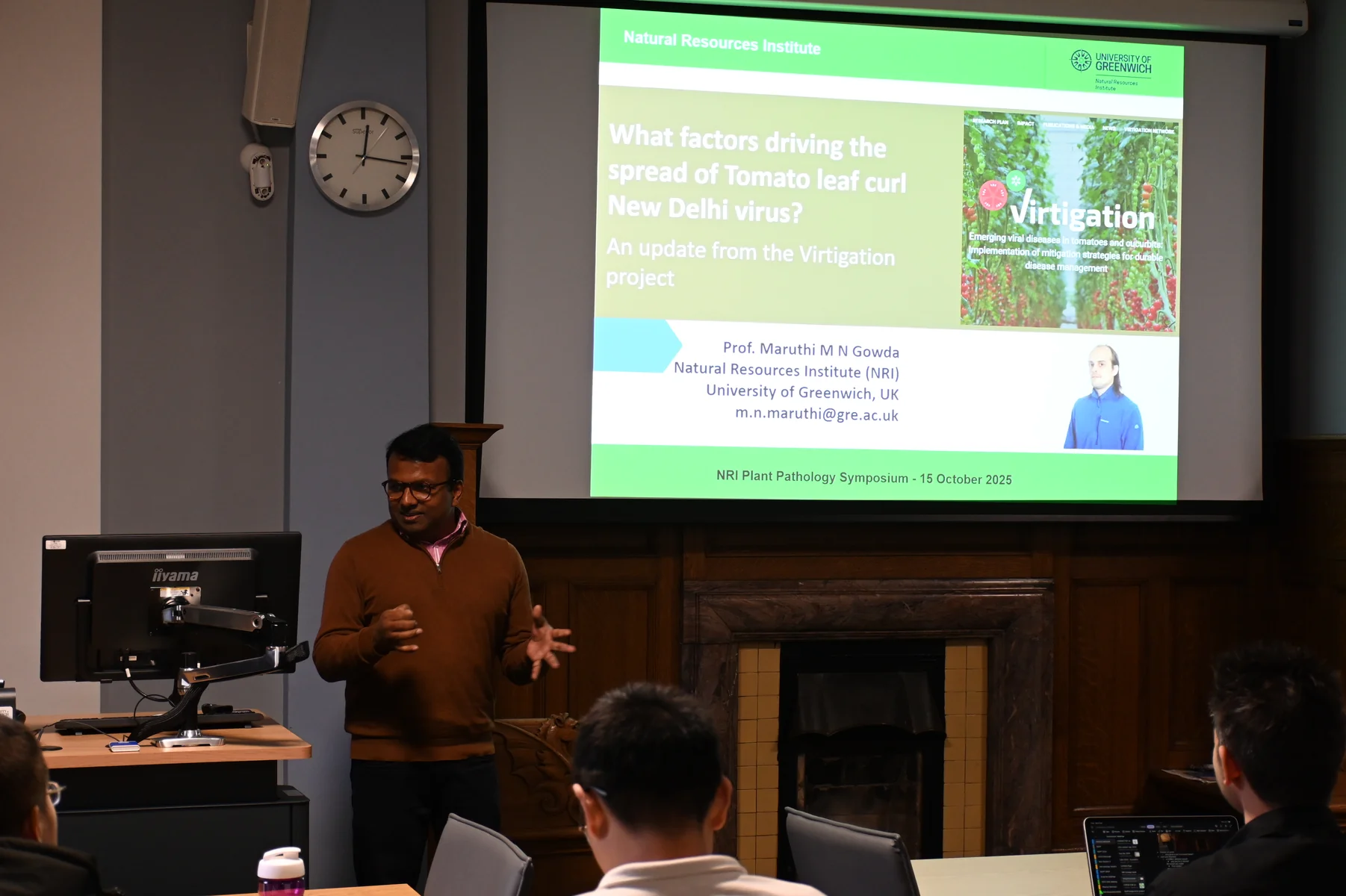
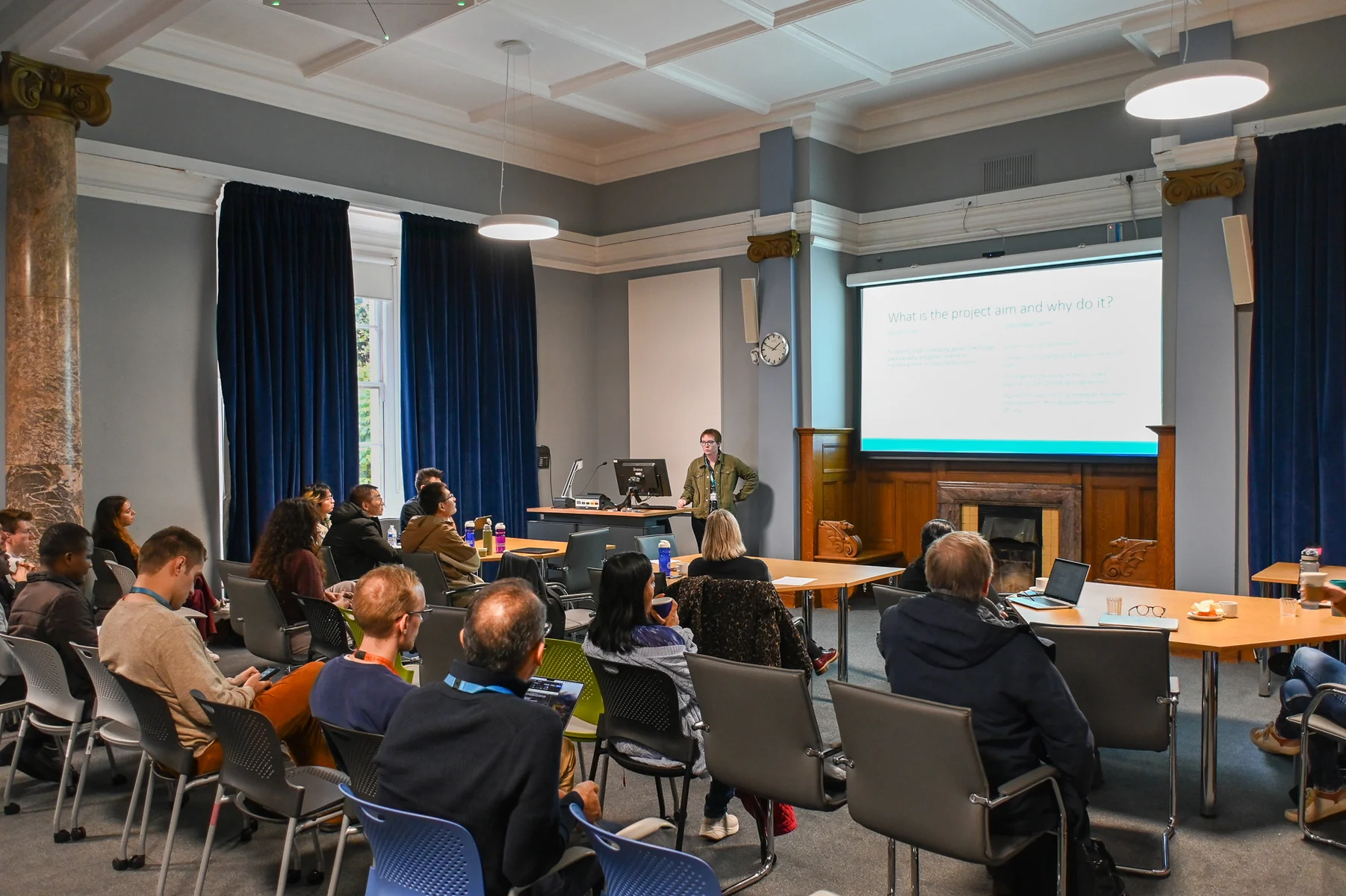
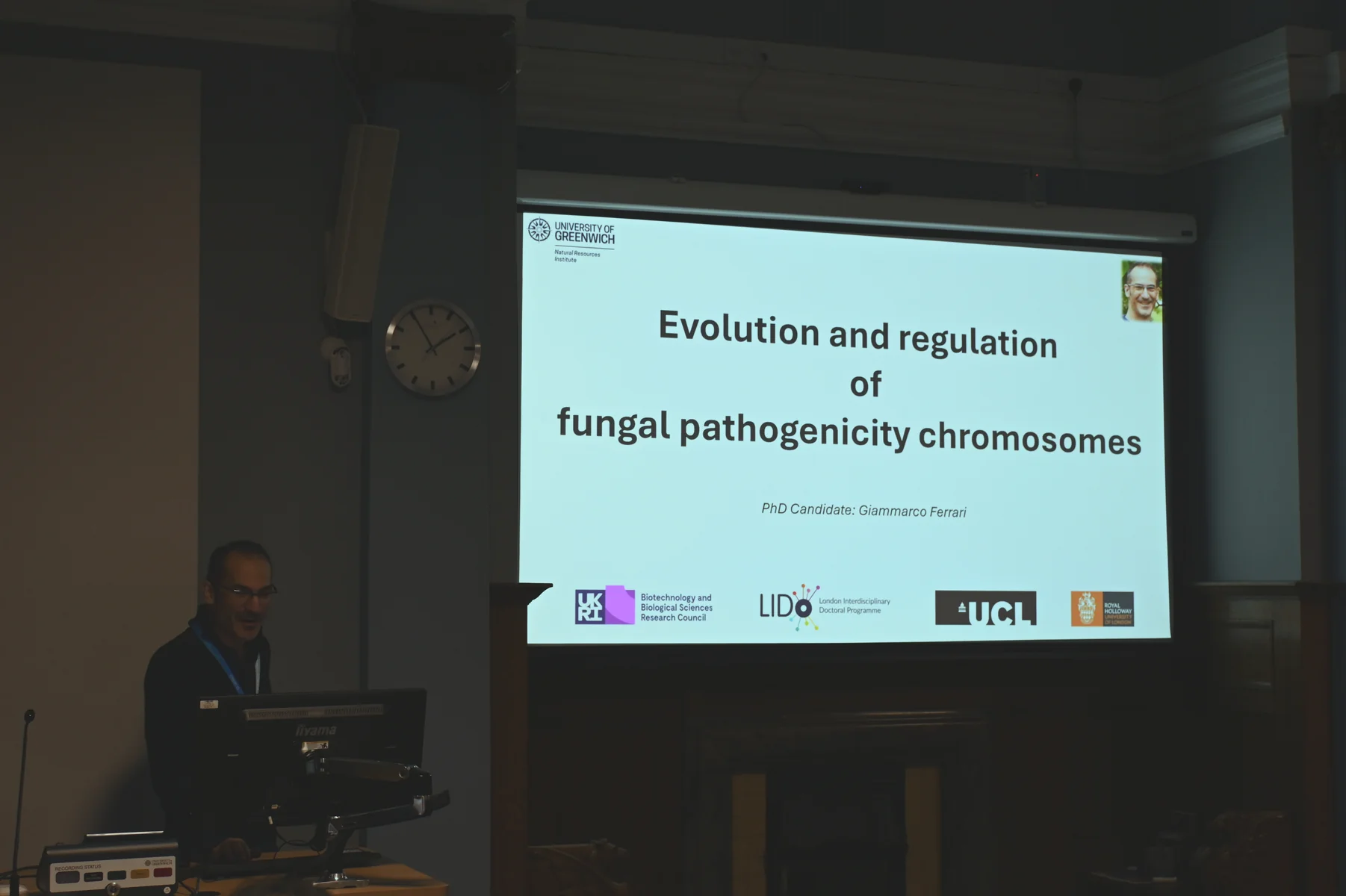
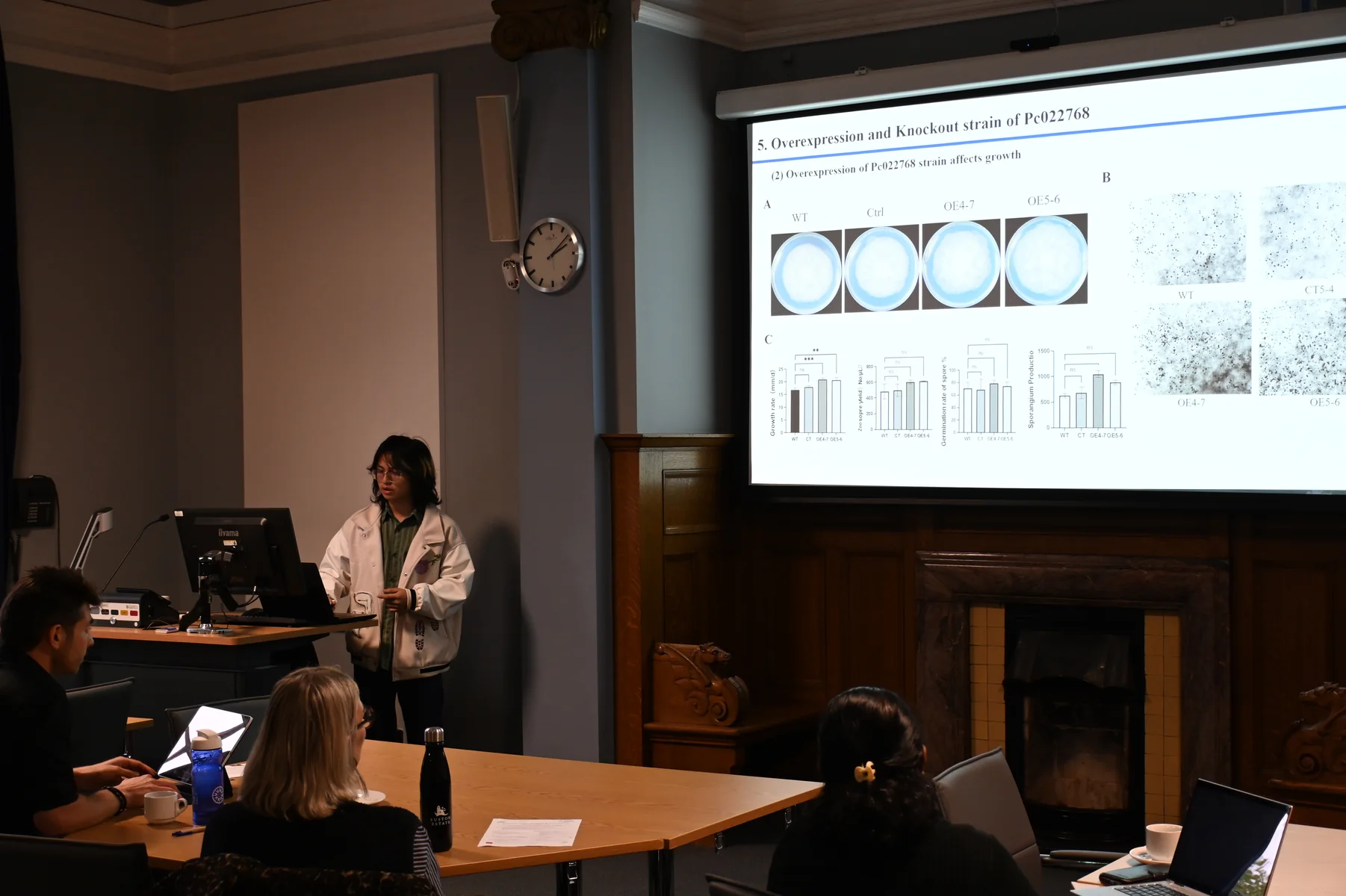
Plant diseases threaten global food security, affecting crops that sustain livelihoods and economies across the world. Research in plant pathology, the study of organisms and processes that cause plant disease, is vital for protecting crops, developing novel pest and disease control products, and ensuring sustainable food systems. Scientists at NRI and partner organisations are at the forefront of this effort, advancing knowledge and developing tools to protect crops and reduce reliance on synthetic pesticides.
Reflecting this global mission, NRI hosted a one-day international workshop on 15 October 2025, showcasing Emerging Control Strategies for Crop Disease. The event, organised by Dr Andrew Armitage, Associate Professor in Bioinformatics and Plant Pathology at NRI, brought together researchers, students, and international guests from Yangzhou University to explore innovative solutions to crop health challenges.

‘This workshop is an excellent example of the research culture at NRI. Open discussion is critical to staying at the cutting-edge of our discipline. International partnerships have brought new perspectives as we search for alternatives to chemical fungicides, strengthening our work on both novel biocontrol agents and identifying beneficial viruses that can disarm plant pathogens.’ – Dr Andrew Armitage.
International plant health research
Presentations by researchers from NRI and the Faculty of Engineering and Science (University of Greenwich), alongside contributions from Yangzhou University, reflected the depth and diversity of plant pathology research taking place at NRI and Yangzhou. Topics ranged from pathogen genomics and biocontrol to viral ecology and agro-technological innovations, demonstrating how researchers are working to reduce dependence on chemical pesticides while improving crop resilience.
Opening sessions examined the genetic basis of host adaptation in key crop pathogens and the discovery of novel control products designed to combat plant disease. Guest speaker Professor Xiaoren Chen of Yangzhou University presented his research on the development of peptide aptamers – small compounds with potential to inhibit or kill harmful plant pathogens – a promising area of study that could transform plant disease management.
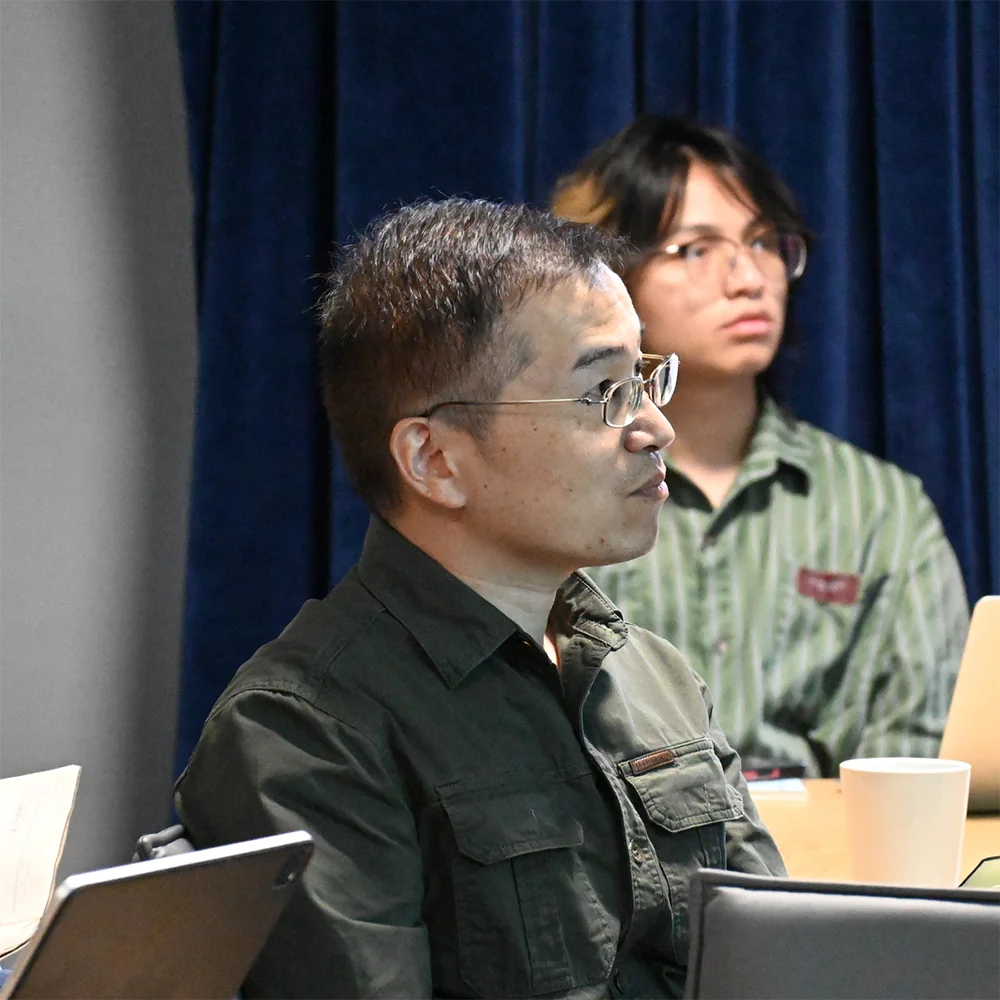
‘Peptide aptamers have emerged as a new, powerful tool with high efficiency and specificity for disease management. Our research group is developing molecules that target key proteins found in oomycete pathogens, a group of microorganisms responsible for serious crop diseases. So far, the aptamers we have developed have shown strong anti-oomycete activity and can effectively protect plant health, demonstrating their potential to provide environmentally friendly alternatives to conventional chemical treatments.’ – Prof Xiaoren Chen, Yangzhou University
Showcasing collaboration and innovation
Subsequent sessions explored the role of fungi and viruses as biological control agents, highlighting progress in biopesticide development, mycovirus discovery, and molecular diagnostics for plant disease detection. These talks highlighted the growing role of biological and genetic approaches in supporting sustainable agriculture.
A common theme of interest between NRI and Yangzhou was virology, in particular the diversity of beneficial viruses that may inflect and disarm plant pathogens:
Mycoviruses are viruses that infect fungi and are widespread in nature. Some of them can disrupt the infection, growth, and reproduction of pathogenic fungi, making mycoviruses valuable biological control agents for plant disease. Our research focuses on the identification and development of mycoviruses associated with oomycete and Fusarium diseases. We have successfully modified the fungal DNA virus FGGMTV1, enabling it to reduce the pathogenicity of Fusarium graminearum and protect crop health. This research not only highlights the application potential of mycoviruses in biological control but also demonstrates the feasibility of designing synthetic mycoviruses with optimised characteristics. – Dr Lihang Zhang, Yangzhou University
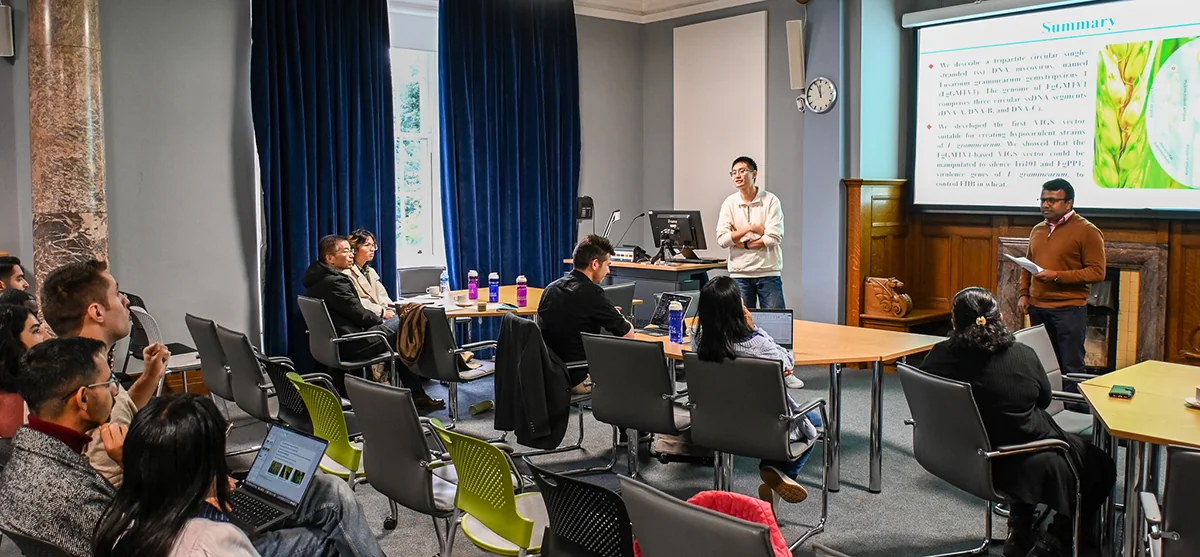
The Plant pathogen evolution, diversity and interactions session showcased NRI PhD students’ work, ranging from fungal diseases of African grains to the role of insect pests as virus vectors and soil–microbe interactions, demonstrating the breadth of plant science at NRI.
Afternoon discussions on Innovations in plant science explored topics such as agrovoltaics (the integration of solar energy generation into agriculture), mushroom-derived health supplements, and novel diagnostic technologies, emphasising the interdisciplinary nature of plant research at the University of Greenwich.
The workshop exemplified how collaborative science can inspire new approaches to long-standing agricultural challenges, reinforcing NRI’s commitment to advancing plant health, food security, and sustainable farming practices through international partnership.
This event was supported by the Royal Society International Exchanges Cost Share (NSFC) programme: EC\NSFC\242483 - Oomycete disease control through development of emerging non-chemical applications.

